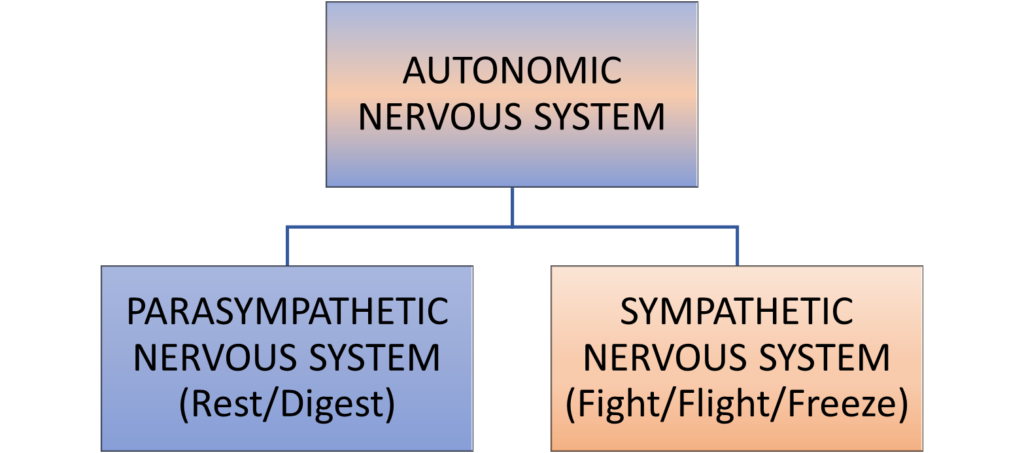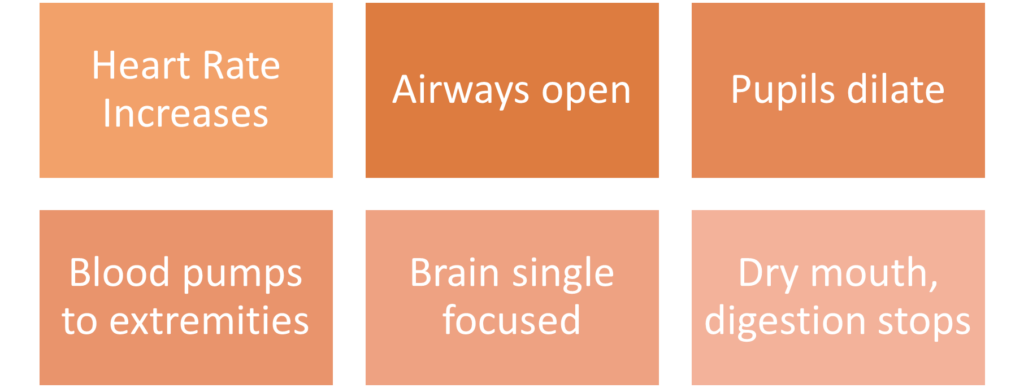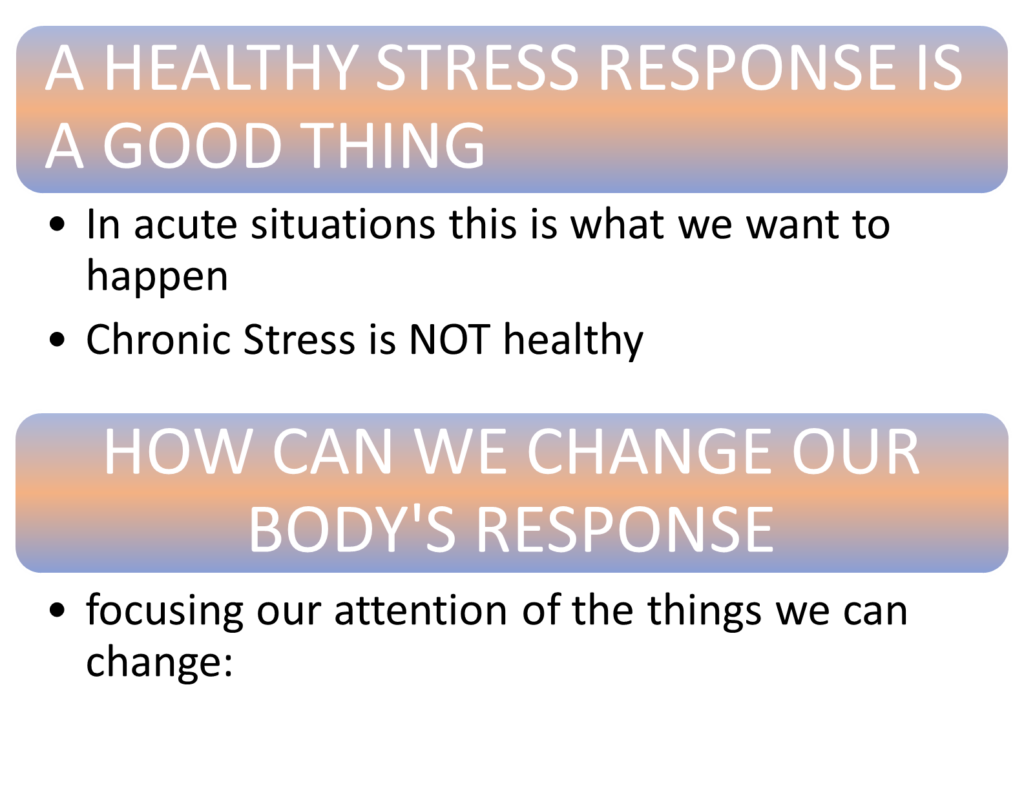I’ve noticed lately that it has become a lot more popular to talk about the vagus nerve in general conversation (or is that just me?). Over the last 5 years I have been talking about this nerve in my presentations on how to deal with stress, during perimenopause, but in all stages of life. But if you are a bit nerdy like me and want to know a bit more about how the vagus nerve works, then here it is a very brief overview of the Vagus Nerve and how it works
WHAT IS Stress?
A state of real or perceived threat to a person – be it physical or mental.
What happens on a physiological level: (how stress affects your body )
Our Autonomic Nervous System (think automatic, as in, we generally do we do not consciously control when it switches from one state to another) responds in one of two ways :

Both these systems can not operate at the same time, therefore when we are relaxed and feeling goo, it is generally the PNS (Parasympathetic Nervous System that is working) and hence all the processes that go with that – good digestion, healthy immune response, good mental functioning. The Vagus Nerve is one of the longest nerves in the body, it has many branches and is really a complex of nerves responsible for almost 80% of the Parasympathetic Nervous System therefore the activation of this nerve is key to inducing the PNS. (Details on how to do this are below).
How Does Stress (the active SNS) show up in the body?
On the other hand, when we are stressed it is the SNS (Sympathetic Nervous System) that is controlling the body’s responses and we become hyper-focused and prepared to respond to the threat or danger.

- BP/HR increases (pumping blood to vital organs and large muscle groups ready to escape)
- Lungs dilate (to get air through to airways) – short sharp rapid breathing
- Pupils dilate (to see better the threat and escape routes)
- Mouth becomes dry, (no need for saliva to be ready to digest food)
- Brain becomes hyper aware of the threat (and slows down functioning in other areas not relevant) pick up the groceries, book that doctors appointment or remember to …
Memory also affected…

- Understanding the power of our Thoughts
- Noticing when we are being triggered
- Taking time to bring our bodies into a state of calm (mindfulness, quiet time)
- Breathing (rate and techniques), belly breathing
For practical, step by step tips on how to manage our body’s response try out one of these:
How to use you Breath to activate the Vagus Nerve
8 Ways to Reset Your Stress Response
OR sign up to the next 4 Week Stress Reset Workshop starting soon or add your name to the Waitlist
..